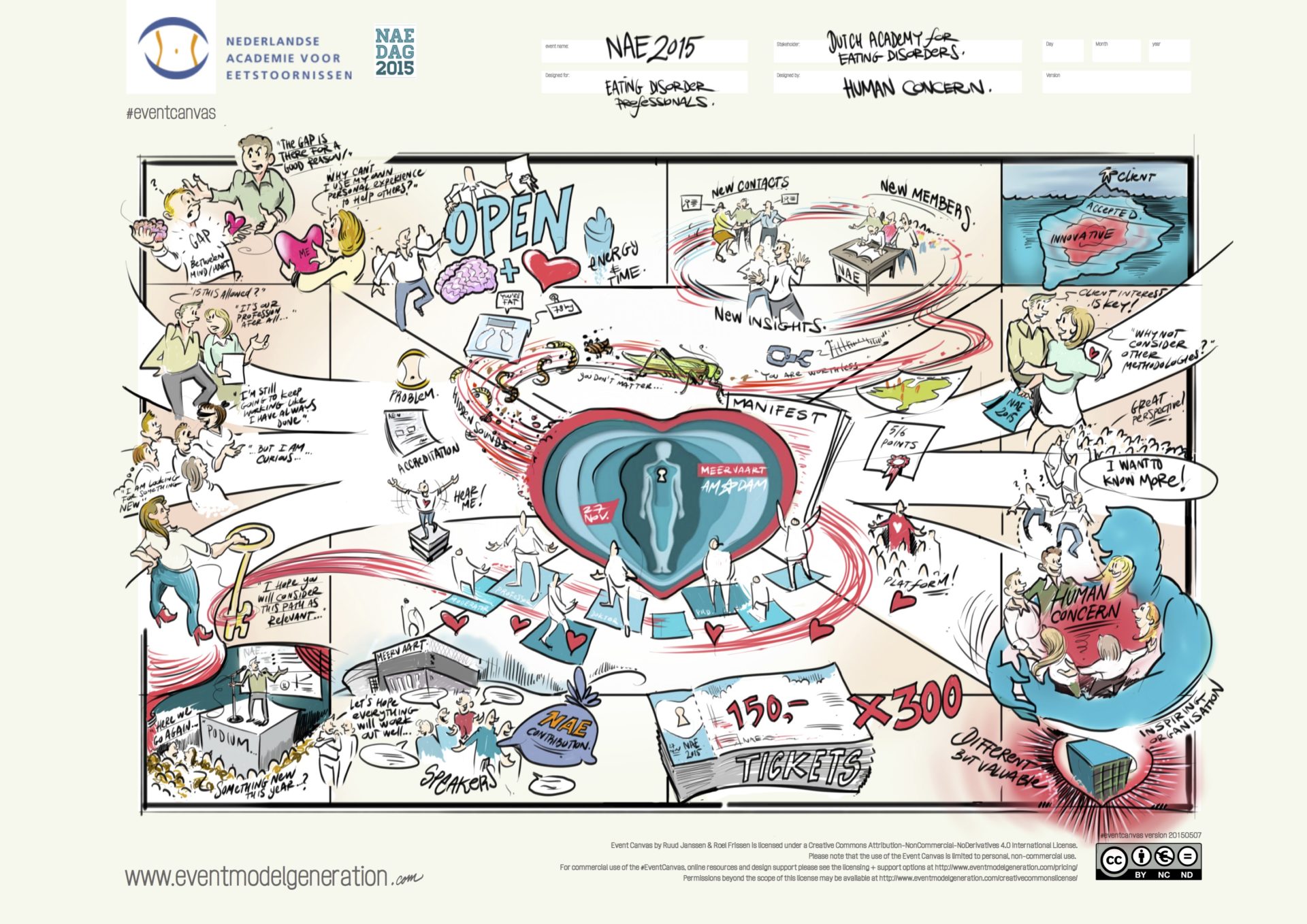NAE Day – Eating Disorders
NAE Day – Eating Disorders
The Dutch Academy for Eating Disorders (NAE) is a association for professionals who work with clients with eating disorders. Professionals can be a member as well as institutions focussed on patient care in the eating disorder field. The Academy is committed to leadership in eating disorders research, education, treatment, and prevention. Knowledge sharing, education, network, multidisciplinary cooperation and advocacy are the pillars this association builds on.
Human Concern, is a member organisation of the NAE. Their concept, vision and approach are different from other treatments. Human Concern works with Experience Professionals. These are professionals which have, next to their professional designation and accreditation, overcome a eating disorder themselves. These professionals use this experience actively and purposefully in their client treatment, which is perceived as unprofessional by most of their peers.
NAE has a biannual meeting cycle. In the even years NAE organises the NAE Congress and in the odd years NAE licenses an event called NAE Day to one of its member organisations. The NAE Day is licensed to Human Concern. The reason for licensing is to offer a sneak peak into a member organisation’s practice. For this event three stakeholders were identified to design for: NAE, represented by the board; Professionals, in the field of Eating Disorders; Human Concern, as the licensee of the NAE day.
Entering Behaviour: The NAE is safeguarding the treatment of clients and is concerned whether the approach of Human Concern is allowed. The Professionals in the field are looking to learn and get new insights on the treatment. Human concern is proud and confident about their approach and sees this opportunity show and to prove their successful treatment.
Pains: The main pain is the gap between heart and mind, where Human Concern is putting the emphasis on and and changed the way of treatment accordingly. The NAE is claiming that this gap is there for a reason. For professionals, of which a big group is in this field because they have overcome an eating disorder, question the reasoning behind the strict separation between heart and mind; why wouldn’t you share some of your own experiences?
Commitment: The commitment of all stakeholders should be: Come with an open heart and an open mind and of course invest time and energy in this event.
Return: Talking about outcomes for every stakeholder when they travel home we identified new contacts, new insights and new members for the NAE.
Gains: Putting the client first, create clarity in the industry about what is accepted and what is innovative and how to position different treatments. Not about right or wrong but about different methods.
Exiting Behaviour: As desired behaviour the team came up with an an open mind for the NAE, as well as a different perspective: why not considering other methodologies but far more important putting the client first. The professionals have a new and fresh perspective on the use of your own experience as a professional in the treatment. And Human Concern gets recognition and is seen as an inspiring organisation.
Expectation: All stakeholders have a certain expectation of the event, based on previous experiences and the fact that Human Concern is organising this year. They expect presentations from the stage supported with powerpoint. They also feel that this year this event could be new and different.
Satisfaction: All stakeholders feel when leaving the event that it was valuable and different, something where passion for curing and caring where in the centre.
Costs: Venue, logistics and speakers as well as a contribution (as a licence fee) to the NAE are the main cost elements.
Revenue: The budget was based on having 300 professionals signing up for an average fee of 150 EUR.
Jobs to be done: As an overarching job the team identified a common interest and care for solving the problem about eating disorders. NAE’s event cycle tells them to organise an annual event. The professionals need need to continuously educate themselves, they need accreditation points and the need to maintain and develop a network. Human Concern is looking for the platform to share their passion and their care for their patients.
Promise: The main reason for participating is different for each stakeholder in this case. The statutory reason for NAE to organise events and the geographical spread of their events involving member organisations is their primary promise. For the professionals it is a way to get the accreditation points and talk to peers and immerses yourself for one day in learning about new ways of treatment and new insights. For Human Concern it is a platform, to be able to create clarity about their approach and to share their passion.
The Event Design
Experience Journey: To enforce the message of putting the clients first a special experience is designed to put all participants in the shoes of a client. To show and have them experience how clients feel. They are measured in different ways, they have to stand on a scale and the result is put on a post-it put on the person’s back so everyone can see it except them. There is a constant audio feed in the breaks whispering thoughts clients have such as “You are too fat” and “You don’t matter”. During the breaks participants are offered insects, considered by some as high protein nutrition and by others as something you shouldn’t eat. That’s the world of people with eating disorders. The decoration is similar to Human Concern’s interior decoration, to stress the human aspect rather than the clinical aspect.
Instructional Design: The instructional design is a mix of experience sharing of (former) clients, best practices and presentations by international speakers. 80% of the speakers are professionals who have overcome an eating disorder. Formats are tailored to the message and there is a focus on dialogue, conversation and storytelling. The Human Scale is the theme of the NAE day, which is a combination to bring issues back to human proportions, seeing the client as a human being and treatment to mix of cure and care. There is art by former clients displayed in the venue and there is a lunch with former clients.
Human Concern hired ByBabs – a event agency based in Amsterdam managed by Babs Nijdam. Babs introduced the #EventCanvas after she had followed a workshop about the methodology. She helped her client’s core team to frame the discussion, analyse stakeholder perspectives and design the event using the #EventCanvas as a template.
Task
Facilitation of Event Design using the Event Canvas Methodology


